Share the following resources as you wish. We request that if you improve upon any of them, please share back!
Board Approved Courses developed for Inquiry Hub Secondary School:
Foundations of Inquiry 11 BAA Course
In this course students will be required to demonstrate the ability to efficiently and effectively navigate the digital technologies required to accomplish specific goals and tasks. Primarily, the goal of digital literacy is that individuals are able to select the correct digital tool at the right time for the right purpose behaving ethically, responsibly and always protecting the personal security and privacy of themselves and others. There are 4 areas of study: Social Networking, Personal Learning Environments and Networks, and Principles of Digital Presentation and, Principles of Inquiry.
Applications of Digital Learning BAA Course
Foundations of Inquiry 11 is a process-based course reflecting the necessary skills for effective participation in contemporary society. Learners will participate in inquiries that are designed to be a complex combination of structured learning with intentional opportunities for students to create, design, imagine along with developing new possibilities. Students will cycle through the stages of inquiry in an overt, intentional and planful manner across the curriculum, at
the appropriate times for the appropriate purpose.

Inquiry Hub Cross-Curricular Competencies focus around:
Identity, Stewardship, Communication, and Design
Positive Personal & Cultural Identity:
How I think and act with respect to myself and others in this social, cultural, historical moment.
Stewardship:
A commitment to act responsibly in the care of common spaces and shared resources for future generations.
Communication:
The process by which a sender transmits a thought to a receiver.
Design Thinking:
An intentional and informed process to create a solution to a problem.
(Creative and Critical Thinking)
(Inquiry Learning)
Core Competency Rubrics: (Based on above and connected to the new curriculum.)
Short/Simplified Rubric – iHub rubric-2015-v1-short
Full Rubric – iHub rubric-2015-v1
Other resources:
- Plan for Inquiry_2013
- Inquiry Rubric 2013
- Reflection 2015
- Reflection_Major 2015
- IDS-inquiry planning template-2015

The Points of Inquiry
The Points of Inquiry: An interesting aspect of Inquiry is that it is messy. We use the BCTLA Points of Inquiry as a visual to emphasize that at any point during your inquiry journey, you might move from point to point (in no particular order).
For example, as you construct something, you might make new connections that result in a different line of questioning (reflection) that perhaps you should look into (investigate) a different plan to construct something new, or take on a new approach that you will need to present (express) in an altogether different way than you had originally planned… Inquiry is not a linear approach to learning.

Canadian Education Association’s Ken Spencer Award
for Innovation in Teaching and Learning
- Winners Brochure 2014-2015
- Background Application: Inquiry Hub: Engaging students through themes and inquiry within a blended learning environment

Learning Through Failure
F.A.I.L. – Failure Always Invites Learning
Failure is failure and nothing more if there is a lack of reflection, support, resources or effort. However, if you try something epic, and you fail… there can be some incredible learning along the way. There is an invitation to learn from failure, but it is an opportunity, not a guarantee.
Two quotes epitomize this acronym:
Student: “If it works the first time, you probably did something wrong.”(Your question was too easy, or you are not fully comprehending what needs to be accomplished. This is only true if you are trying something very challenging.)
Teacher: “I don’t know half of the things I talk about, I’m just comfortable in the not knowing.” (Students will ask big questions you don’t know the answer to… and they will likely get to the answer (knowledge/information) before you can… However, you can help them with the cognitive skills they need to find the answers (as Marzano mentioned yesterday).)
Read more about this: Learning and Failure (Blog post)

Resources from other schools:
Blog post: In Query
Including this great resource:
Work that Matters: This guide is for teachers. It explains how to design and run projects for students that begin with an inquiry and end with a tangible, publicly exhibited product.

Inquiry Hub Links
(Shared or discussed in our presentation)
Website: InquiryHub.org :: ‘About’ Page :: Facebook :: Twitter
Sample Student Portfolio: Jay Jang. And his Leapiono Inquiry
Student Garden (group blog): Green.InquiryHub.org
Lettuce Sprouting Inquiry by the Green Inquiry Team
Student created polling site for election: VoteVancouver.org And: A local news article about it.
Brandon and Josh’s Attendance App (Facebook Video)
Visit us during our Open House on December 2nd, 2015!
Click here to RSVP

BCSSA 2015 Presentation
By Stephen Whiffin & David Truss

Presentation Description
The SD43 Inquiry Hub (iHub) is a program of choice for grades 9 to 12 students. It provides an innovative, technology-driven, full-time program which allows students to pursue their own learning questions by shaping the educational experience around their interests instead of structured classes. Despite having a full-time face-to-face school day, the iHub leverages online learning materials creating a blended learning environment where deep learning is achieved through mentorship relationships and independent directed studies (IDS) while gaps in curricular outcomes are addressed through flexible online materials.
Key features of the iHub include mandatory courses in learning through inquiry (Foundations of Inquiry) and Digital Media. Foundations of Inquiry introduces cycle of investigation that supports students as they study topics of their own choosing on a small scale, within set timeframes, and culminates in presentations that demonstrate skills across multiple subject areas. Senior level IDS courses run similarly to the smaller projects in grades 9 and 10, but require far more focus, deeper learning and commitment (100-120 hours).
Teachers encourage students to pursue their interests and make learning visible through the design of new products, services and experiences. Students are challenged to seek mentorship beyond the school boundaries, but reaching out to subject area specialists in the community to create a “network of support” to guide their inquiry processes. They are also encouraged to promote stewardship through action by taking care our school, their community and the world.
The Inquiry Hub won the 2015 Canadian Education Association’s Ken Spencer Award as the most innovative educational program in Canada. The iHub’s application of blended and inquiry based learning through personalized experiences are strongly connected to the BC Education Plan and will provide BCSSA members with a tangible example of how, by removing traditional constraints from the learning environment, a school successfully transform the learning experience.
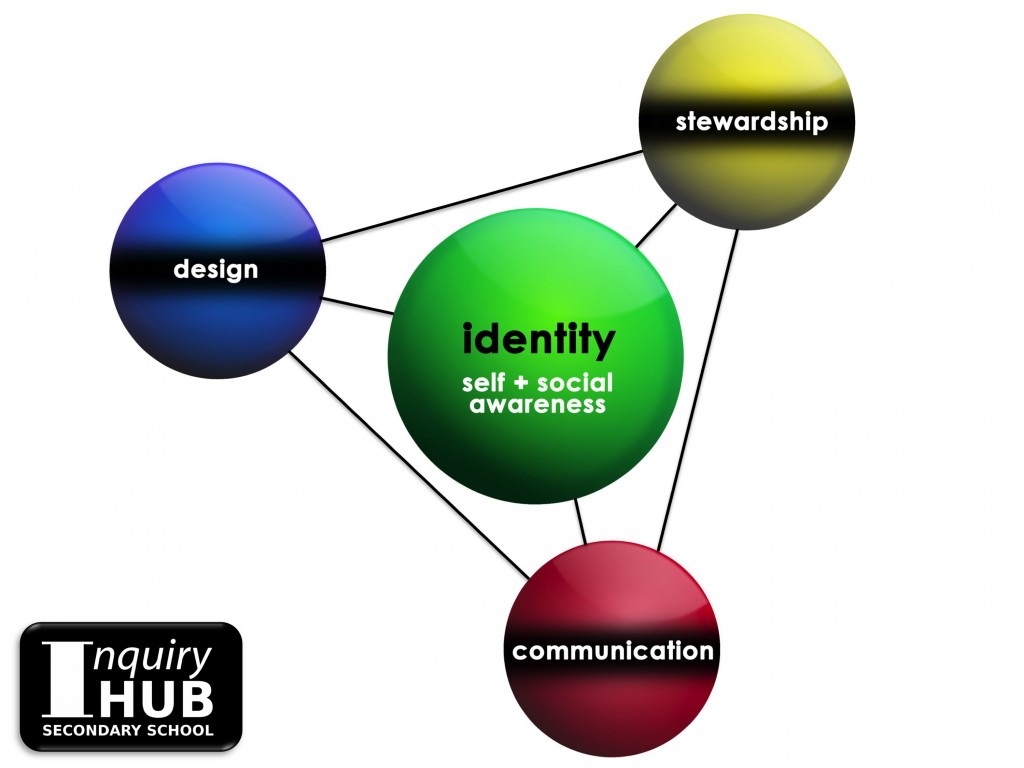
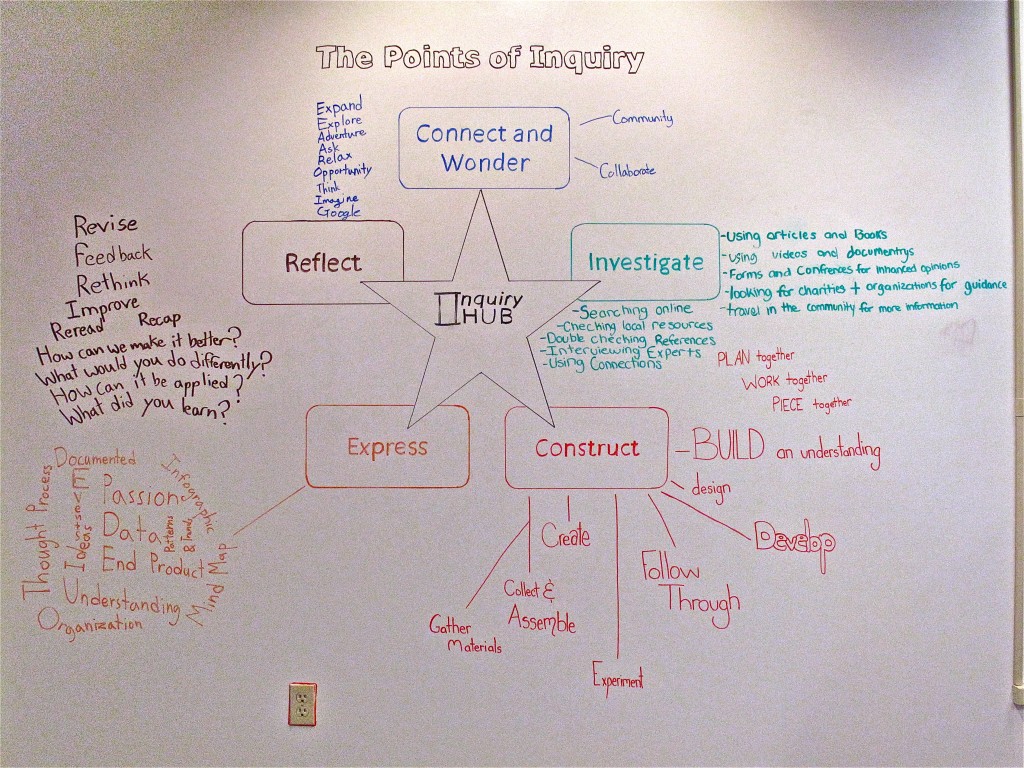
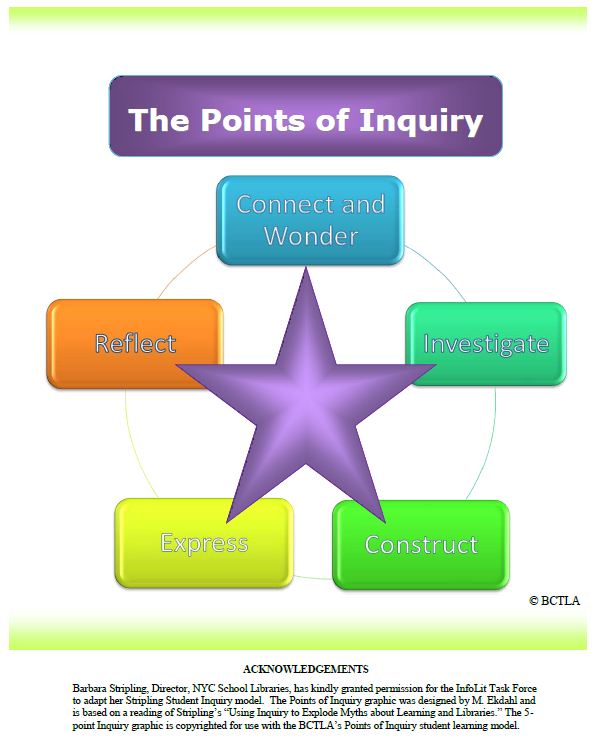
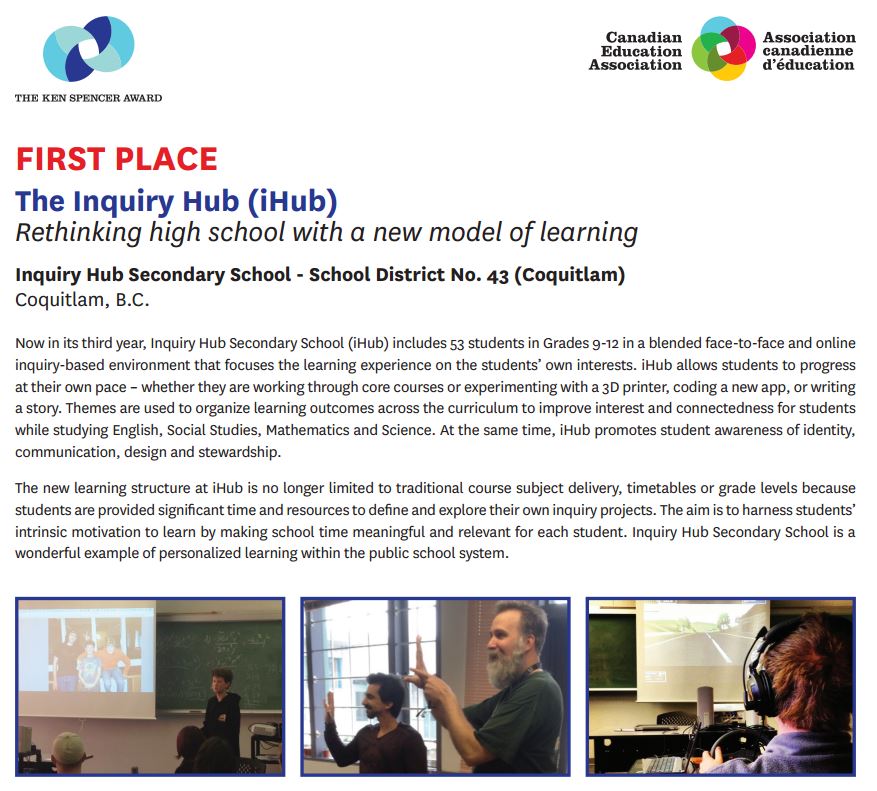

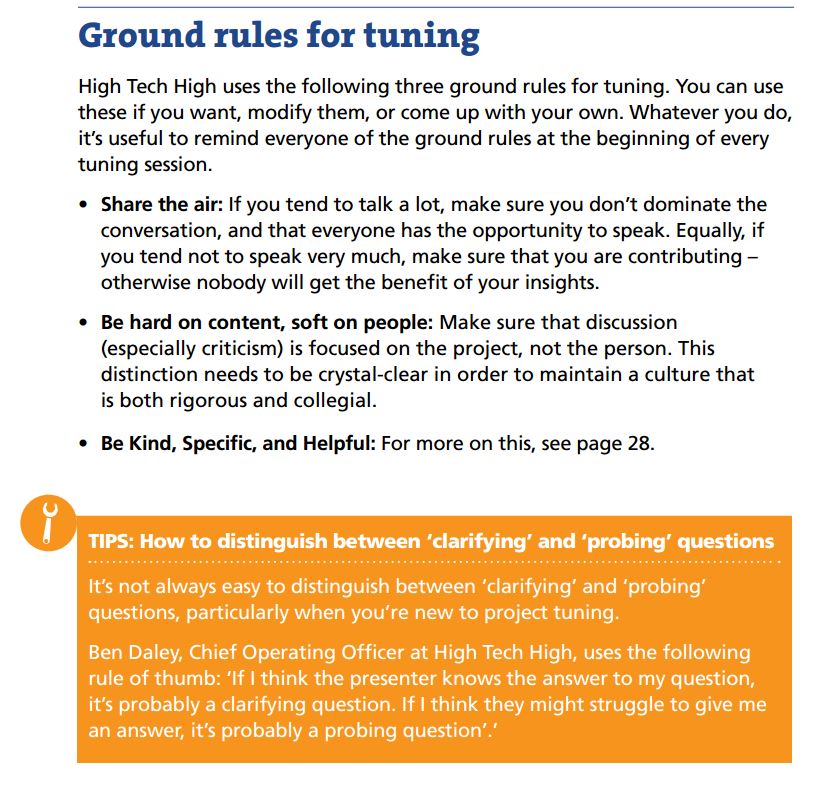
Building on a Theme: “Students are interested in exploring environmental and technical aspects of urban gardening”
What are some potential inquiry questions that might arise from this theme and how may those questions contribute to development of the core competencies?